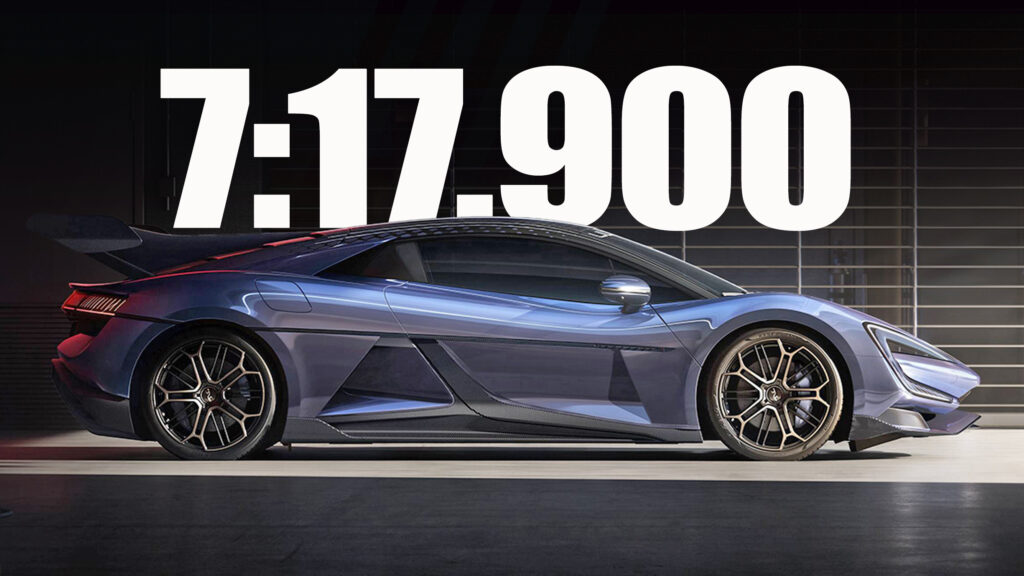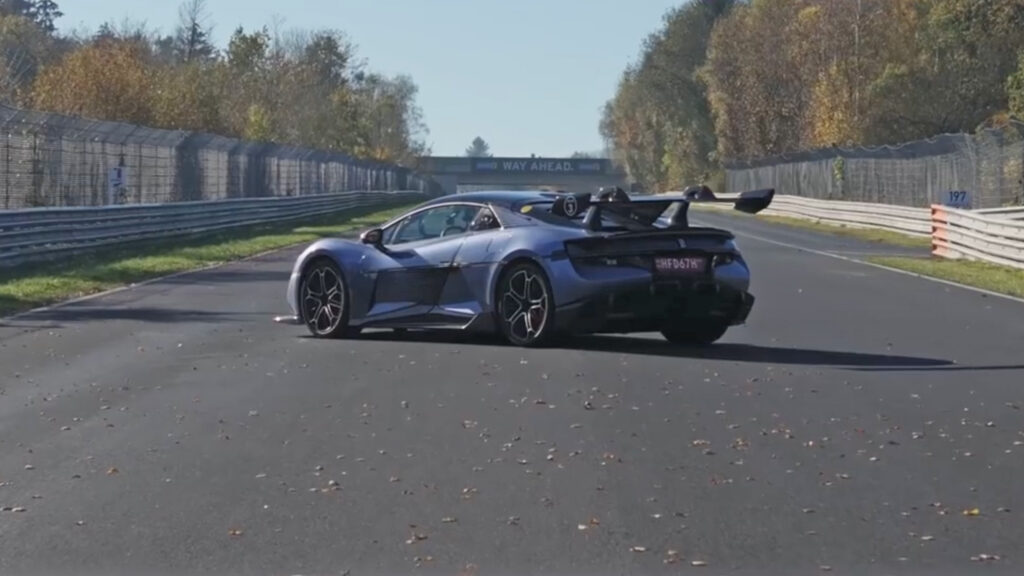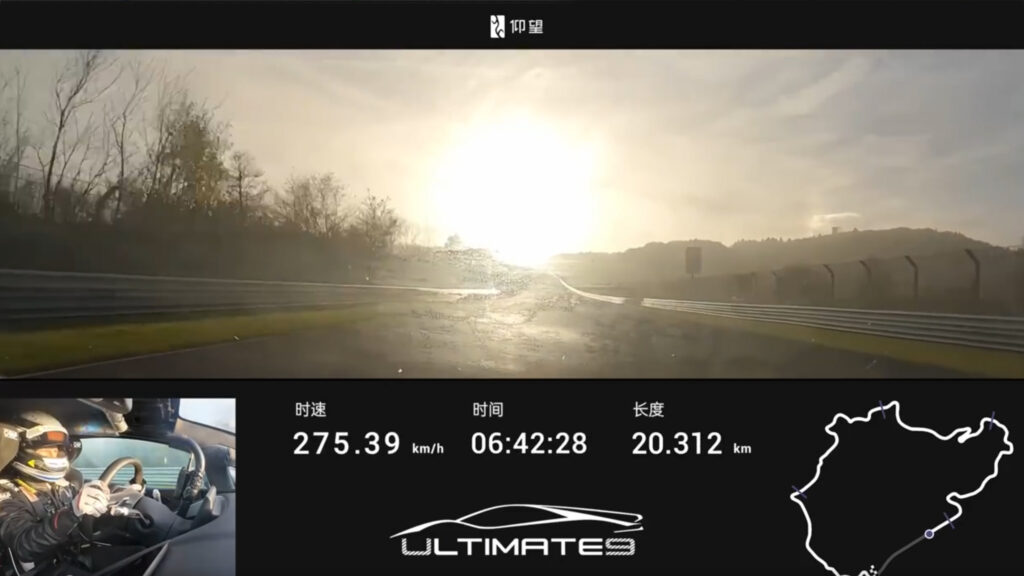YangWang U9 Hits 244 MPH Top Speed, But Can’t Beat The Taycan At The Nurburgring

- The YangWang U9 is the fastest Chinese production model with a top speed of 243.54 mph.
- The electric supercar lapped the Nurburgring at 7:17.900, although it could likely do better.
- The lap time falls short of the Xiaomi SU7 Ultra, Porsche Taycan Turbo GT, and Rimac Nevera.
BYD is back in the news again, this time with its YangWang U9 electric supercar claiming a Nürburgring lap time of 7:17.900 and a headline-grabbing top speed of 391.94 km/h (243.54 mph). The latter earns the U9 the title of the fastest Chinese production car to date. Impressive numbers, no doubt—but as always, the devil is in the details, and on closer inspection, these achievements begin to show their limits.
Good, But Far From Great
Let’s start with the Nürburgring lap time: 7:17.900 is respectable, particularly for a fully electric car. However, in the pantheon of high-performance EVs, the YangWang U9 isn’t exactly rewriting the history books. It’s a full 30 seconds adrift of the Xiaomi SU7 Ultra prototype’s blistering 6:46.874 and also lags behind production benchmarks like the Porsche Taycan Turbo GT (7:07.55) and the Rimac Nevera (7:05.298).
More: Mercedes-AMG One Beats Its Own Nurburgring Record With 6.29 Lap Time
The Chinese carmaking giant also shared onboard footage of the fastest lap on social media platforms, hinting that the YangWang U9 may not have been pushed to its full potential. In the video, the EV reaches a maximum of 275 km/h (171 mph) on the German track’s final long straight.
On November 7, the YangWang U9 hit a top speed of 391.94 km/h (243.54 mph) on an oval test track, setting a new record for Chinese production cars. This achievement also places it among the fastest EVs globally, though it still trails behind the Aspark Owl’s impressive 438.7 km/h (272.6 mph) and the Rimac Nevera’s 412 km/h (256 mph).
After reviewing the video of the top-speed run, it’s evident that BYD held back during its lap at the Green Hell. One possible explanation for the driver’s conservative approach could be an unspecified technical issue, though the company has chosen not to elaborate on the matter, leaving room for speculation.
The Chinese supercar is equipped with quad electric motors producing a combined 1,287 hp (1,305 PS) and 1,239 lb-ft (1,680 Nm) of torque. The EV tips the scales at a hefty 2,475 kg (5,456 pounds) and uses an 80 kWh battery pack, which is good for a CLTC range of 289 miles (465 km) on the road.
More: BYD’s 1,287-hp YangWang U9 Gets Red Hot During Nurburgring Testing
BYD’s engineers reportedly spent six months testing the U9 at the Nürburgring, experimenting with a range of setups and tire configurations. Despite this extensive effort, the lap time suggests there’s still room for improvement. At this stage, it’s unclear whether BYD intends to return to the Green Hell for another attempt to shave down its time.
The YangWang U9’s final lap time will be added to the Nürburgring’s official record list once BYD completes several certification processes. According to Chinese media, this delay is due to the fact that the production model has not yet been introduced to the European market. Meanwhile, in China, the YangWang U9 is already available for order, with prices starting at ¥1.68 million ($233,000).

